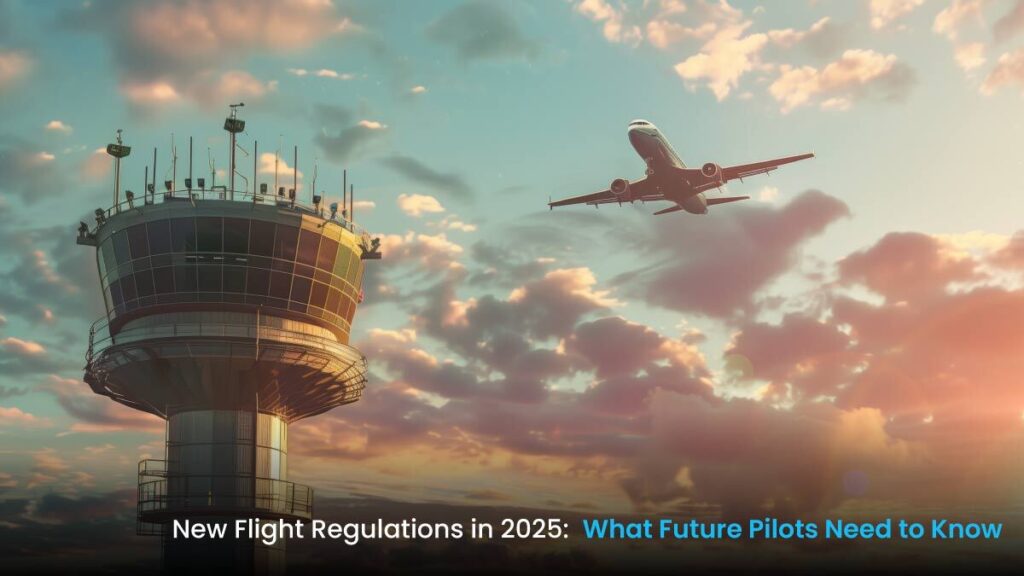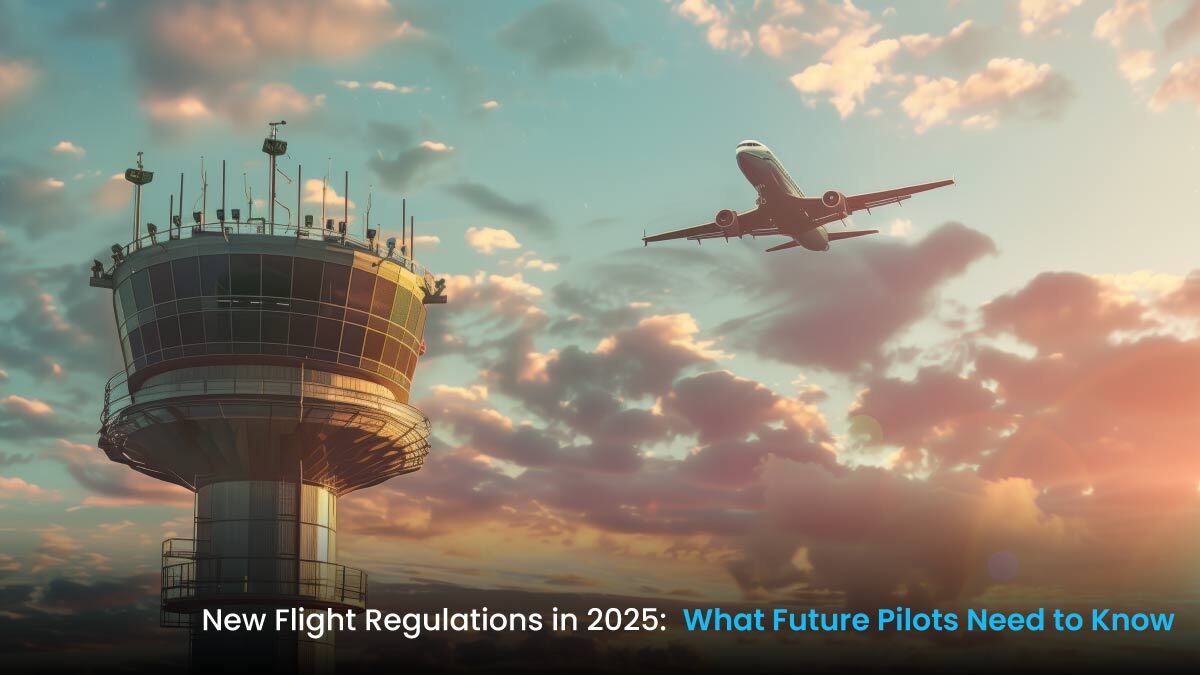
New airline regulations will be implemented in the aviation industry by 2025. Air travel will also see updates (including pilot training, passenger security, and environmental policies). If your goal is to become a pilot, these changes will prepare you for your career.
Better Passenger Security
Starting April 1, 2025, all foreign carriers operating in India should transmit passenger data to Indian Customs. The goal is to enhance security and identify potential threats before takeoff.. Airlines need to provide travelers data with them 24 hours before their departure and register with the National Customs Targeting Centre-Passenger (NCTC-Pax) before January 10, 2025. Failure to comply could bring them a penalty between ₹25,000 and ₹50,000 in each instance.
This will require pilots to adhere to strict security protocols. Pilots will need to coordinate with airline security teams to comply. Pilot Training programs will likely include more lessons on passenger data management and security procedures.
New Pilot Work Hours for Safety
The Directorate General of Civil Aviation (DGCA) has changed flight duty rules to prevent pilot fatigue and improve safety. From June 1, 2025, pilots must have at least 48 hours of rest per week instead of 36. Also, night-time flying hours will be reduced to allow pilots to get enough rest.
This means the Flying school schedules will have to adjust to match the new rules. Trainees may need more time to complete flight hours while ensuring they get proper rest. As a result, the overall cost of becoming a pilot in India may increase slightly due to extended training periods.
Going Green: New Fuel Rules
To reduce pollution, India is making new rules about Sustainable Aviation Fuel (SAF). Other countries, like Canada, Singapore, and Japan, are doing the same. SAF is more expensive than regular fuel, but it helps reduce carbon emissions and supports the goal of achieving net-zero emissions by 2050.
Because of this, Flying school programs will teach more about SAF. Pilots will need to learn how it affects flight performance and fuel efficiency. Future pilots who understand these eco-friendly policies will be better prepared for modern airline jobs.
Changes in Pilot Training
These new rules will also affect Pilot Training programs. Flying school instructors will need to update their lessons to include new flight duty rules, fuel regulations, and passenger data management. Training schedules may be changed to give students more rest between sessions. Pilots will also need to understand automation systems and airline safety regulations.
Since airline rules and regulations are becoming stricter, airlines will prefer pilots who are already familiar with these policies. This means aspiring pilots must be ready for additional training before they can get their licenses.
Cost of Becoming a Pilot
Becoming a pilot is expensive. The cost of becoming a pilot in India depends on the training school, location, and type of license. On average, it costs between ₹60 lakhs and ₹75 lakhs to get a Commercial Pilot Licence (CPL). This includes flight training, ground school, and certification fees.
With new regulations, training costs may go up. Aspiring pilots might have to take extra courses on SAF usage, safety rules, and compliance training. Some airlines may offer financial aid to students who agree to work for them after training.
Job Market for Future Pilots
These airline rules and regulations could change job opportunities for pilots. Airlines will need pilots who are trained in eco-friendly aviation and advanced automation systems. This could increase the demand for skilled pilots in the future.
However, since SAF is more expensive, airline costs will rise. Some airlines might reduce hiring to save money. To stay competitive, pilots must keep improving their skills and stay informed about industry changes. The best job opportunities will go to pilots who understand new fuel regulations and advanced cockpit technology.
Conclusion
The aviation industry is changing fast. New airline rules and regulations in 2025 will focus on safety, security, and environmental protection. If you want to become a pilot, you must stay updated on these changes, adjust your Pilot Training, and prepare for financial costs.
Students at Flying school should pay attention to the new regulations. Learning about SAF, flight duty limits, and security rules will help them find better job opportunities. Being well-trained and informed will make it easier to start a successful career in aviation.
FAQs
Q: What are the major changes in flight regulations for 2025?
A: New rules include airlines sharing passenger data with Indian Customs, updated pilot work hours to reduce fatigue, and new environmental policies for using Sustainable Aviation Fuel (SAF).
Q: How do these new regulations affect pilot training?
A: Pilot Training programs will change to include new rest time rules, lessons on SAF, and updated security procedures. Flying school schedules may adjust to match these changes.
Q: Are there new safety regulations pilots must follow?
A: Yes, pilots must now take longer breaks between flights and follow strict night-time flying limits to ensure they are well-rested and alert during flights.
Q: How do the new regulations address carbon emissions?
A: The new rules require airlines to use more Sustainable Aviation Fuel (SAF) to reduce pollution and meet environmental goals.
Q: Do these regulations impact job opportunities for future pilots?
A: Yes, airlines will need more SAF-trained pilots and automation systems. However, higher fuel costs may limit airline hiring in the short term.
Q: Will the cost of pilot training increase due to these regulations?
A: It is possible. Additional courses on SAF, safety, and regulations may increase costs. Some airlines may offer financial aid to students who agree to work for them after training.
Q: How should aspiring pilots prepare for these changes?
A: Stay updated on new airline rules and regulations, ensure your Flying school covers all necessary training, and take extra lessons in environmental aviation. Keeping up with industry changes will help you succeed in the job market.

